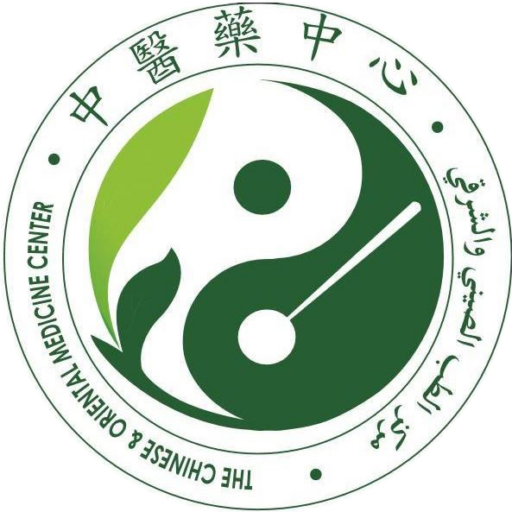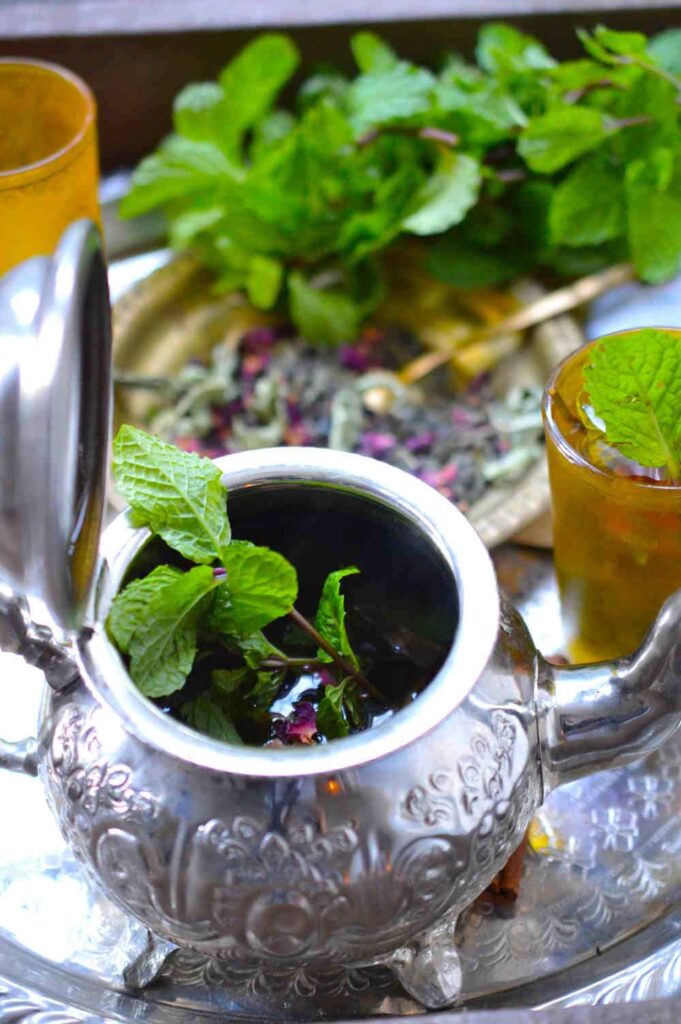In recent years, it is regrettable to observe a gradual marginalization and stigmatization of mint (薄荷, Bò Hé, نعناع, Na’na’) in Morocco, a plant deeply entwined with the nation’s cultural and culinary identity. Too often dismissed as a mere garnish, mint’s profound herbal and medicinal properties have been undervalued. From the perspective of Traditional Chinese Medicine (TCM), mint remains a potent botanical treasure. By understanding its medicinal benefits through TCM principles, Moroccans may rediscover the profound value of their mint heritage and reintegrate it into daily life for wellness and cultural preservation.
The Historical and Cultural Significance of Mint in Morocco
Mint has long held a special place in Moroccan households, particularly in the preparation of traditional mint tea—a symbol of hospitality and social bonding. This tradition underscores the herb’s cultural significance, yet its functional use has diminished over time. Many Moroccans have turned to synthetic remedies, overlooking mint’s medicinal properties in favor of modern pharmaceuticals.
Mint’s Medicinal Properties in TCM
In TCM, mint (薄荷, Bò Hé) belongs to the category of herbs that are “pungent and cool to release the exterior” (辛凉解表, Xīn Liáng Jiě Biǎo). It is especially effective in addressing early-stage illnesses caused by external pathogenic factors like wind-heat (风热, Fēng Rè).
- Cooling and Dispersing Properties
Mint’s cool nature and pungent taste make it ideal for clearing heat and dispersing stagnant energy, or Qi (气机, Qì Jī). It is effective for treating symptoms such as fever, sore throat, and headaches. Furthermore, it soothes the liver and regulates Qi (疏肝理气, Shū Gān Lǐ Qì), making it valuable in alleviating stress and emotional tension, conditions described in TCM as liver Qi stagnation (肝气郁结, Gān Qì Yù Jié).
- Digestive Benefits
Mint is well-known for its ability to harmonize the spleen and stomach (调和脾胃, Tiáo Hé Pí Wèi), aiding in the relief of bloating, indigestion, and nausea. This aligns with Moroccan traditions of pairing mint tea with rich meals to enhance digestion.
- Antimicrobial and Detoxifying Effects
Mint’s essential oils contain menthol and rosmarinic acid, which exhibit antimicrobial and anti-inflammatory properties. In TCM, these effects are understood as the ability to clear heat and detoxify (清热解毒, Qīng Rè Jiě Dú), making it suitable for addressing skin inflammations, mild infections, and respiratory congestion.
- Enhancing Mental Clarity
The refreshing aroma of mint awakens the spirit and opens the orifices (醒神开窍, Xǐng Shén Kāi Qiào), promoting mental clarity and focus. This echoes Moroccan practices of using mint tea to invigorate the senses during times of fatigue.
The Importance of Reclaiming Mint’s Heritage
Mint is far more than an aromatic herb; it is a multifaceted remedy with the power to balance the body’s internal energies. The marginalization of mint in Morocco represents not only the loss of a valuable health resource but also a detachment from cultural heritage. By combining TCM principles with Moroccan traditions, mint can reclaim its role as both a cultural and medicinal cornerstone.
Urging a Return to Mint’s Roots
The Moroccan people are stewards of a remarkable botanical heritage. Mint’s therapeutic potential, validated by TCM and Moroccan traditions, underscores its indispensability in daily life. By embracing mint not just as a cultural artifact but as a cornerstone of health and vitality, Moroccans can reaffirm their connection to nature and their ancestral wisdom.
Let us not allow the treasures of the past to fade into obscurity. The path forward lies in rediscovering and reintegrating mint into everyday life, not only for its physical healing properties but also for the cultural and emotional nourishment it offers. To the people of Morocco: cherish your mint, honor its legacy, and let it serve as a bridge between tradition and modernity.
References
李时珍,《本草纲目》,南京出版社,2019年版。
张仲景,《伤寒论》,中华书局,2020年版。
王华,《中药学》,中国中医药出版社,2021年版。


Merci à vous pour ce bel article et bravo pour vos actions.
Merci a vous!